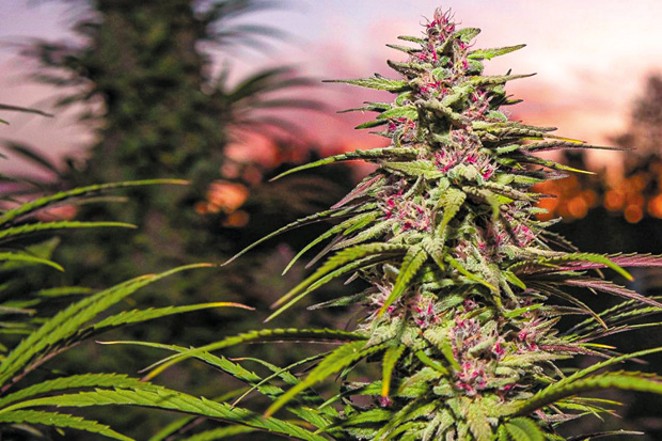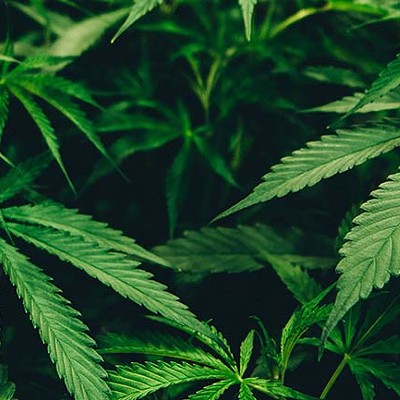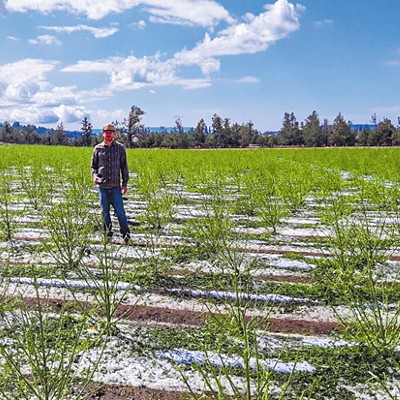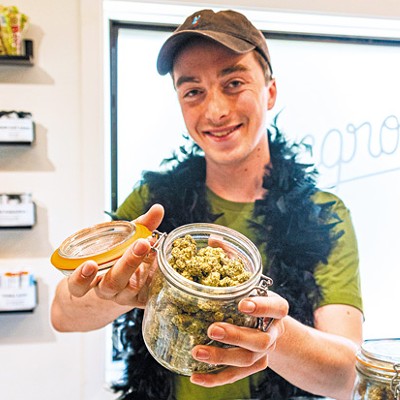Deschutes County Heads for an Opt-Out Vote
Folding under the weight of pressure from a loud contingent of rural residents who oppose the continued existence of regulated cannabis farms, the Deschutes County Board of Commissioners in August halted the processing of new land-use applications for recreational marijuana farms, processors or dispensaries. While the decision to "opt out" will ultimately be referred to the voters in 2020, this action has no effect on existing cannabis companies.
The latest controversy came in response to the Board's decision to amend its time, place and manner rules in 2018. These rules significantly curtailed the number of marijuana businesses that could exist in the county by increasing separation distances from other cannabis companies, increasing setback requirements, and barring cannabis companies of any kind from the Mixed-Use Agricultural Zone, among other rules. This triggered a challenge to the Land Use Board of Appeals by pro-marijuana industry players, including the Deschutes Farm Bureau.
Instead of litigating the worthiness of their new rules, the Board withdrew the changes, and scheduled further hearings for public input. What followed was a raucous public hearing on July 3, where numerous residents demanded that the county "opt out." Despite lack of any scientific evidence, most residents complained about odor, traffic, water usage,and worries over increased criminal activity as justification for their concern.
In 2014, Oregon Ballot Measure 91 was presented to voters to legalize recreational marijuana. Statewide, voters approved the measure resoundingly (about 56% to 44%). Deschutes County voters narrowly approved the measure (51%). The state allowed counties and municipalities to "opt out" if their locality voted against legalization by a margin of 55% or greater, and other localities could later "opt out" so long as they sought voter approval thereafter.
While County officials discussed posing multiple questions on the ballot (Will the voters approve production? Processing? Retail? All, none, or part of the above?), the Oregon Liquor Control Commission has made clear that counties cannot permit only some marijuana licensees while barring others.
Unregulated marijuana grows have attracted county attention as well. Deschutes County District Attorney John Hummel sought a $700,000 grant, the lion's share of which will go to the Sheriff's Office to police black-market grows. In 2017, the county gave law enforcement $136,000 in grant funds, but there have been no criminal convictions against unregulated growers/traffickers since then. Hummel has insisted that cases are pending, and "the breadth of the investigations are much larger than we anticipated."
Oregon preps for interstate commerce
Oregon Gov. Kate Brown this year signed into law SB582, which would authorize Oregon cannabis businesses to do business with cannabis companies in other states where it is legal. In other words, the state is getting ready for the possibility that the federal government will legalize marijuana and allow for interstate trafficking of cannabis.
This is, of course, a largely symbolic move that likely won't have any legal effect until a new presidential administration is sworn in, and marijuana is removed from the Drug Enforcement Agency's schedule of dangerous narcotics. All the same, it signifies the state's continued forward-thinking attitude regarding marijuana, and its willingness to make it one of the cornerstones of the agricultural economy.
Hemp across the nation
Meanwhile, in D.C., lawmakers seem keen to proliferate the distribution of hemp and cannabidiol (aka CBD, the non-psychoactive extract from hemp that has been hailed as possible treatment for seizures, joint pain, anxiety, etc.).
Conversely, THC-heavy marijuana continues to be a Schedule 1 drug. Even so, more than 90 million people live in states with legal marijuana statutes on the books, and more than half the country's population has access to legal medical marijuana in their state. Moreover, the STATES Act, reintroduced to Congress this year, would allow banks to do business with cannabis businesses without fear of federal reprisal, and has bipartisan support. It passed in the U.S. House in September.
Suffice to say, from Alfalfa, Oregon, to 1600 Pennsylvania, 2020 will be an enormous election year when it comes to the sticky icky.


























